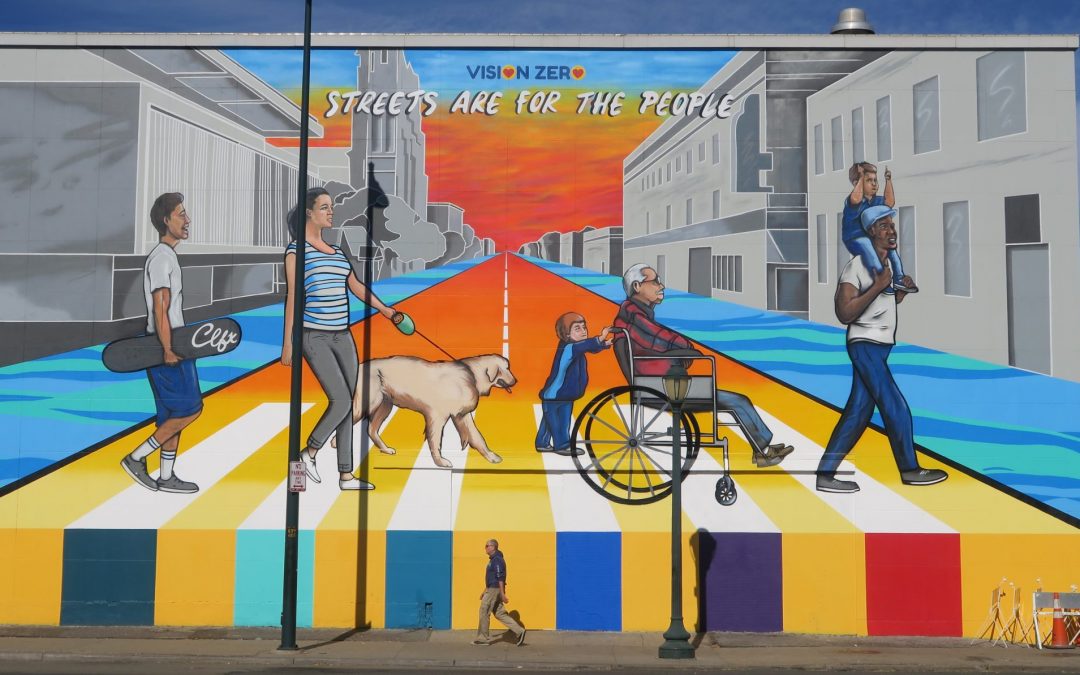“Streets are for the People” is no longer just a catchphrase. It is not even just a statement anymore. It is a challenge, a call to action – and it isn’t coming from us.
Even when space is described as public and is designed for people, Black people claiming this space are seen as a threat. Any attempts to create a transportation system and public spaces that prioritize human dignity must acknowledge this truth, and the moral debts that have compounded over 250 years of slavery, 90 years of Jim Crow, 60 years of separate but equal, and 35 years of racist housing policy.1 The Black members of our community are leading the fight, the same way they have for a long time. But they will not solve the problem alone because they are not the ones causing it. We are being called out, and we do have to answer. Now, and in the years to come.
At the Denver Streets Partnership, we are committed to confronting this racist history and being anti-racist as individuals and as an organization.
We will ask tough questions of ourselves and our work. We will look for the ways that we have perpetuated racism in past. We will seek out, listen to, and amplify voices that have been marginalized, both within our team and throughout the city. We will set goals and action items for our organization. We will support the work that is already being done by organizations, institutions, and community champions focused on creating more equitable public spaces. And with the acknowledgement that this will be a long, difficult, ongoing process, we will continue to work towards a vision of streets that are truly for the people.
We invite you to visit our website to read a personal reflection from Jill Locantore, the Executive Director of the Denver Streets Partnership.
1Coates, T. (2014) “The Case for Reparations.” The Atlantic. June 2014 issue.

